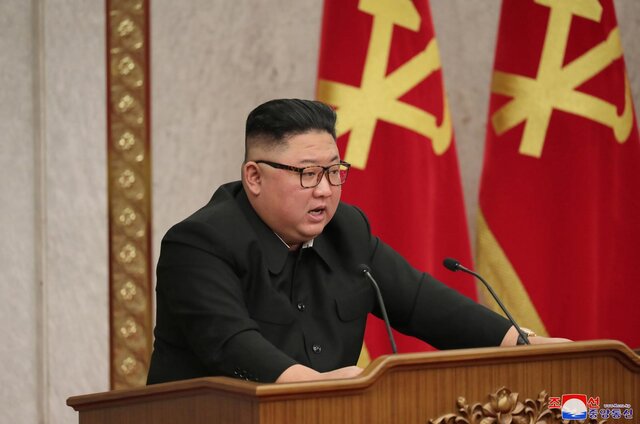Based on the new nuclear law, the nuclear state of North Korea has been defined as irreversible. In the meantime, the right to use preemptive nuclear strikes for self – protection has been recognized. The new nuclear law of September 9, 2022 will replace the previous 2013 law that outlined the nuclear state of North Korea for the first time.
The measure is taken by Pyongyang while from international observers’ point of view North Korea is preparing itself to resume new nuclear tests which are supposed to be done for the first time since 2017 followed by historic meetings between North Korea and the United States of America.
North Korean leader Kim’s statement on the law is very interesting. He said in a speech that “the most important aspect in the approval of the new law is the outline of an irreversible path which makes impossible the deal over our nuclear arms”. He added:” even if the country is subjected to a hundred years of sanction, it never quits its nuclear capability”.
The law is important from different aspects. From one hand, it provides a strong legal guarantee to strengthen North Korea’s position as a country that has nuclear arms and makes the nuclear policy of North Korea transparent and precise. On the other hand, the law makes the scope of authorities and action of North Korea much wider than the previous law.
While it was spelled out in 2013 law that North Korea can use nuclear arms to avert offenses or assaults made by a nuclear hostile country and make retaliatory attacks, the new law goes far beyond that and let nuclear preemptive strikes.
One can mention the following factors on the reason why the previous law was amended and the recent one was approved:
- Compulsion of the world community to admit the situation of North Korea as a “nuclear country”;
- Re-enforcement of the position of North Korean leader and protecting him in circumstances when there is a contingency of Pyongyang regime change by the U.S. and South Korea;
- South Korea’s Kill Chain Strategy; based on the strategy, South Korea can assault nuclear infrastructures and commanding system of the country in case it suspects the occurrence of an imminent assault by North Korea. According to Kim, the strategy paves the ground for long term tensions between the two Koreas and makes the security status of Pyongyang more fragile and vulnerable.
- Election of Yoon Suk – yeol as the President of South Korea in March 2022, his tough policies as well as positions versus North Korea. During his presidential campaign, he promised South Koreans to adopt tougher positions on North Korea in comparison with previous South Korea’s presidents who used to have compromising approach, and if it requires, he will make preemptive strike against North Korea.
The approval of the new North Korean nuclear law will be coupled with important effects and consequences at regional and international levels. The first strategic consequence of the approval will be fragility of security environment of North East Asia and encouraging regional players to strengthen their military capability.
It is obvious that the U.S. regional allies, i.e. Japan and South Korea will be among these players. Mounting economic pressures and imposition of further economic sanctions on North Korea are among other predictable consequences of the decision. The U.S. increased presence in East Asia, holding military war games and maneuvers with the collaboration of regional allies will be the third conceivable consequence of the decision.
To finally conclude, it can be said that the decision made by North Korea escalates regional tensions more than ever and deepens concerns about the risks emanated from miscalculation or unwanted nuclear clash in Asia and Pacific region.










0 Comments